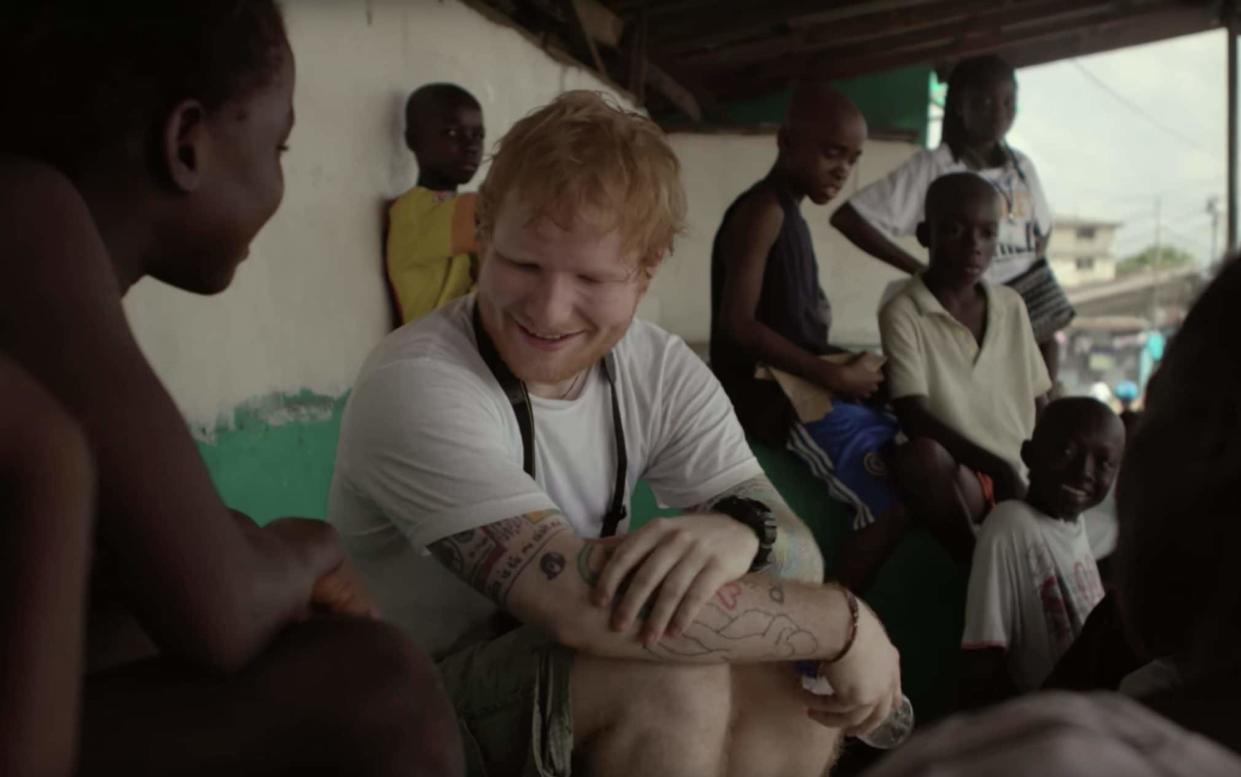Charities may lose money as Comic Relief drops 'white saviour' celebrity campaigns, CEO admits

The head of Comic Relief admits charities may lose money as a result of its move to stop celebrities fronting fundraising campaigns, amid concerns about white saviour stereotypes.
Liz Warner, a former TV commissioning editor and executive who received awards for her commitment to diversity in the industry, said the change was in response to criticism over its fundraising videos.
Last year one video starring singer Ed Sheeran was described as "literally poverty tourism" and was named "most offensive" campaign by an organisation which highlights cliched and stereotypical charity campaigns.
Labour MP David Lammy also criticised Red Nose Day for being "tired and patronising to Africans".
In an interview with the Guardian, Ms Warner admitted that the new strategy was a risk as celebrity-fronted campaigns were a tried-and-tested way of raising funds.
Former charities minister Rob Wilson called the change "very disappointing".
Celebrities very much help to reach audiences that normally wouldn't be reached. They can be very effective in that they have a huge amount of people who follow them on social media.
"Whilst I am no fan of the celebrity culture that has developed, I do recognise the impact they can have in helping to connect with the public in the UK - whatever their colour.
"Lenny Henry has done an outstanding job over many years fronting Comic Relief in the UK.
"Of course our biggest celebrities are the Royals and Prince Harry in particular has done an enormous amount to help charities operating in Africa," he said.
"Is Comic Relief really saying white people have nothing to say or contribute in providing a focus on these very real issues?"
Another charity, the Disasters Emergency Committee, said it was considering changing its approach in its own videos after it was also criticised.
Two of its videos, which involved actors Tom Hardy and Eddie Redmayne appealing for donations to help with the Yemen crisis and East Africa famine appeal, were also nominated for the award, known as the "Rusty Radiator", last year.
Nicola Peckett, its communications director, told the Daily Telegraph: "We did take the feedback from the Rusty Radiator nominations very seriously and we are talking to our broadcast partners about how we could do things differently in the future."
She said the organisation's videos were made on a very short timeframe of 72 hours by news teams at the BBC and ITN, and it made efforts to choose celebrities who were connected in some way to the subject matter of the appeal.

Experts said celebrities were traditionally used by charities to reach out to lay audiences about emotive issues.
John Baguley, chair of the international fundraising consultancy, which advises charities on how best to fundraise, said using "the right kind of celebrities" could raise more money than using "the most popular celebrities available".
"You can very often see the celebrities coming face-to-face with problems that they hadn't experienced before and the visceral impact of the kind of suffering that development charities deal with around the world has a very marked effect on those celebrities and one can feel, 'yes that is the way I would react'".
He added: "Celebrities very much help to reach audiences that normally wouldn't be reached. They can be very effective in that they have a huge amount of people who follow them on social media.
"They don't all have to be white celebrities, they can be celebrities of any sort."
He said the move would be positively received by a "sophisticated, educated audience, that might look a bit askance at anything that smacks of imperialism".
A Charity Commission spokesman said that it could not comment on the plans by Comic Relief saying that "it’s not a regulatory matter."
A source at the regulator added: "It’s up to charity trustees to make decisions about how best to run their charity which includes decisions on fundraising".

 Yahoo News
Yahoo News 
